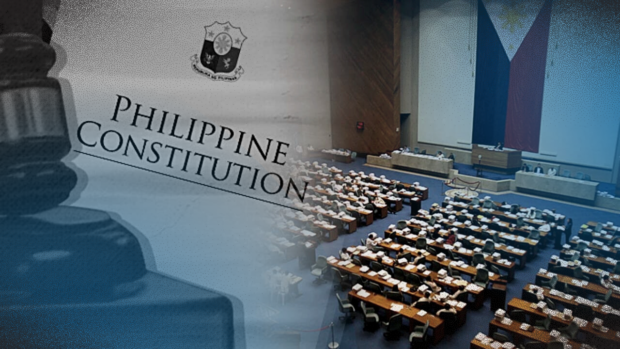
MANILA, Philippines — Now is not the time to amend the Constitution, the August Twenty One Movement (ATOM), a group of anti-martial law activists, said in a statement on Tuesday.
“The last time a Marcos Administration spearheaded a Constitutional Convention in 1971, a bribery scandal erupted […] The 1971 Constitution would eventually lead this country into the dark pits of a Martial Law regime,” ATOM, which was founded in commemoration of the assassination of former Sen. Benigno “Ninoy” Aquino Jr., said.
“While our present Constitution may not be perfect, it is not the right time to prioritize this, considering that our country is still battling the after-effects of the COVID crisis,” the group added.
ATOM was referring to the exposé by Eduardo Quintero, a delegate of the 1971 Constitutional Convention during the administration of then-President Ferdinand Marcos Sr. Quintero said there were sectors bribing delegates to lobby provisions that would favor them.
According to ATOM, it will strive to preserve the ideals fostered by Aquino — like his unwavering love for democracy.
Aquino, the leading opposition figure during the first Marcos administration, was killed on the tarmac of then-Manila International Airport on Aug. 21, 1983.
The events following his death would lead to the ouster of Marcos on Feb. 25, 1986. He was replaced by the former senator’s wife, Corazon Aquino, under whose administration the 1987 Constitution was created.
“We, the members of the August Twenty One Movement (ATOM), remain steadfast to preserve the ideals of Ninoy and committed to stand by with Democracy at all cost,” ATOM noted.
Call for protest
Meanwhile, the progressive group Bagong Alyansang Makabayan (Bayan) called on Filipinos to protest this push for a constitutional convention, noting that it would only burden the economy.
Bayan Secretary General Renato Reyes said it would not be reasonable for the government to spend around P15 billion for the delegates while the country was facing a P13.7 trillion debt.
“We are in a deep debt worth P13.7 trillion, but the government seeks to spend billions of funds for cha-cha [charter change],” Reyes said in Filipino.
“A call to the Senate: Do not allow yourselves to be used for this dark plan. Our call to the people: Oppose the term extension and the selling of local interests to foreigners.”
Enabling law
ATOM and Bayan made their separate statements shortly after the House of Representatives approved on its third reading House Bill (HB) No. 7352, which if enacted will be the enabling law to Resolution of Both Houses (RBH) No. 6.
There were 301 lawmakers who voted in favor of HB No. 7352 while seven were against it.
RBR No. 6 calls for a charter change through the constitutional convention, one of the three possible methods to amend the 1987 Constitution. Under this system, voters would elect delegates who will amend the existing organic law or craft a new constitution.
The Constitution may also be changed through a constituent assembly, where sitting members of the Congress would convene themselves into an assembly, and through a people’s initiative.
HB No. 7352 outlines the regulations that would be followed in implementing RBH No. 6.
However, the House proposal will use the suggestion of former Supreme Court Chief Justice Reynato Puno to form a hybrid constitutional convention — with some members elected and some appointed by the House speaker and the Senate president.